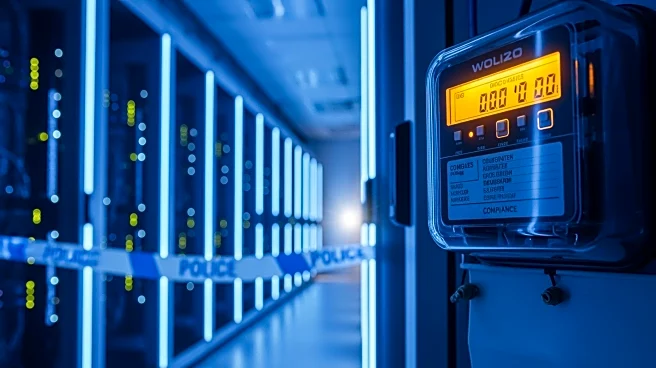What is the story about?
What's Happening?
Indian Prime Minister Narendra Modi has announced a push for self-reliance in energy and defense sectors during his Independence Day address at the Red Fort in New Delhi. This comes as India faces pressure from the United States, which has threatened to double import tariffs on Indian goods if the country does not cease its purchase of Russian oil. Modi emphasized the importance of energy independence and the development of indigenous defense systems, including fighter jet engines and semiconductor chips. He also mentioned plans for India to build its own space station and defense shield within the next decade.
Why It's Important?
Modi's call for self-reliance is significant as it reflects India's strategic response to geopolitical pressures, particularly from the United States. By focusing on energy independence and defense capabilities, India aims to reduce its vulnerability to external influences and strengthen its national security. This move could impact global energy markets and defense industries, as India seeks to diversify its energy sources and develop its own military technology. The emphasis on self-reliance also aligns with Modi's broader economic vision for India, potentially boosting domestic industries and innovation.
What's Next?
India's push for self-reliance may lead to increased investment in domestic energy and defense sectors, with potential collaborations between government and private entities. The country may also seek alternative energy suppliers to reduce dependence on Russian oil. Additionally, Modi's plans for indigenous semiconductor production and defense systems could foster technological advancements and create new opportunities for Indian scientists and engineers. The geopolitical implications of India's self-reliance strategy may prompt reactions from major global players, including the United States and Russia.
















